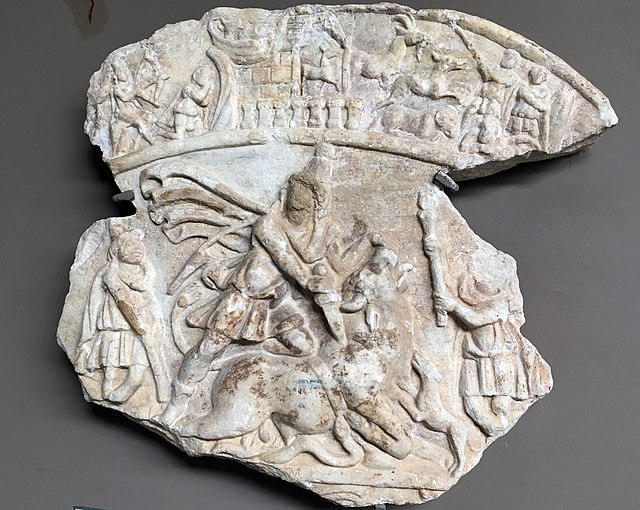Mithra, commonly known as Mehr or Mithras among Romans, is an ancient Iranian deity of covenants, light, oath, justice, the sun, contracts, and friendship. In addition to being the divinity of contracts, Mithra is also a judicial figure, an all-seeing protector of Truth, and the guardian of cattle, the harvest, and the Waters.
Late 4th-century Sasanian relief of Mithra
Coinage of Kushan ruler Kanishka I with Miiro (Μιιρο), "Mithra". c. 120–150 CE
Coin of Artabanus II of Parthia (c. 128–124 BC). The Hellenistic depiction on the reverse shows the king kneeling before an Apollo-like god, which is thought to be Mithra.
A marble relief of the tauroctony in later Roman Mithraism, 2nd – 3rd century CE
Asha or arta is a Zoroastrian concept with a complex and highly nuanced range of meaning. It is commonly summarized in accord with its contextual implications of 'truth' and 'right', 'order' and 'right working'. It is of cardinal importance to Zoroastrian theology and doctrine. In the moral sphere, aṣ̌a/arta represents what has been called "the decisive confessional concept of Zoroastrianism". The opposite of Avestan aṣ̌a is 𐬛𐬭𐬎𐬘 druj, "deceit, falsehood".
Coinage of Kushan ruler Huvishka, with "Asha Vahishta" (ΑϷΑΕΙΧϷΟ, Ashaiexsho) on the reverse.





